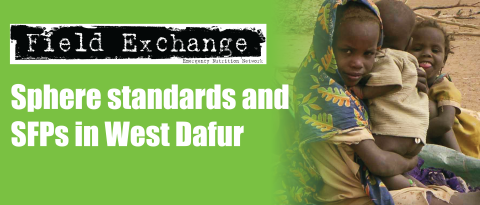Sexual exploitation and food distribution in Burundi
Summary of published research1
CARE International has been a key partner of the World Food Programme (WFP) in Burundi since the outbreak of the civil war in 1993, distributing emergency food aid to refugees, returnees, internally displaced people (IDPs) and others. As the security situation in the country has improved, the programme has moved from generalised emergency feeding to semi-regular targeted distributions. Implementing partners and local government officials are supposed to identify households that meet pre-established vulnerability criteria, and are thus included in the beneficiary lists.
In light of various irregularities uncovered by field teams, CARE conducted a study between October 2004 and June 2005 to document whether sexual relations were being used as a means to access food aid, to identify the reasons and mechanisms behind such abuse if it was taking place, and to develop strategies to reduce the risk to beneficiaries. The findings have been written up in a recent article summarised below.
Partnering with a local theatre group called Tubiyage ('Lets talk about it'), which has extensive experience in facilitating community discussions on ethnic conflict, sexual violence, HIV/AIDS and other sensitive subjects, the research team used interactive theatre techniques to introduce the subject in focus groups and public fora, and to elicit testimonials from victims.
In the focus group discussions and semistructured interviews, both victims and perpetrators confirmed that sexual harassment and exploitation were present in the food aid process. Exploitation took place in secret and was never discussed openly, certainly not during the public validation of beneficiary lists when irregularities are supposed to be identified. Widows and other single women, either without husbands or without grown-up sons, were found to be particularly vulnerable, as they had no adult males in the household to protect their reputation, and no money to bribe the village heads to include them on the lists. Fear that they would be excluded from the lists was the main factor that led women to submit to requests for sexual favours.
Perpetrators were generally those who established the beneficiary lists. The participants in the theatre presentations and focus groups also unanimously confirmed the presence of bribes and other forms of corruption.
Participants in the study suggested procedures to reduce the incidence of sexual harassment and exploitation of food aid beneficiaries. These included;
- Always having an employee of WFP or CARE present during the creation of lists to ensure transparency.
- Electing mixed committees of beneficiaries, including women, to monitor list creation and food aid distribution.
- Ending the involvement of the local administration in the creation of lists.
- Ensuring that list validation is done publicly in every village with the active participation of women and young people.
The role of the local administration remains a complicated question. While the study identified local officials as the primary drivers of abuse, experience shows that side-stepping them completely can cause significant conflict between participatory structures and local authorities and leads them to undermine actively project activities. In the context of postconflict Burundi, where local officials have been elected for the first time, the government and donors such as WFP are insisting on more, not less, collaboration with the local authorities.
The study has proved to be a powerful tool for advocacy with WFP. Since sharing its findings, CARE has been allowed to devote more human resources to monitoring the development and public validation of lists, and the agency has been experimenting with new approaches. These include separate validations with men and women, and involving local partners, such as the Burundian Red Cross and the Catholic Church Diocese Committees, who are helping CARE agents to monitor targeting and list development at the village level.
1 Zicherman. N (2006). 'It is difficult to escape what is linked to survival': Sexual exploitation and food distribution in Burundi. Humanitarian Exchange, volume 35, pp 30-32, November 2006.
Imported from FEX website


